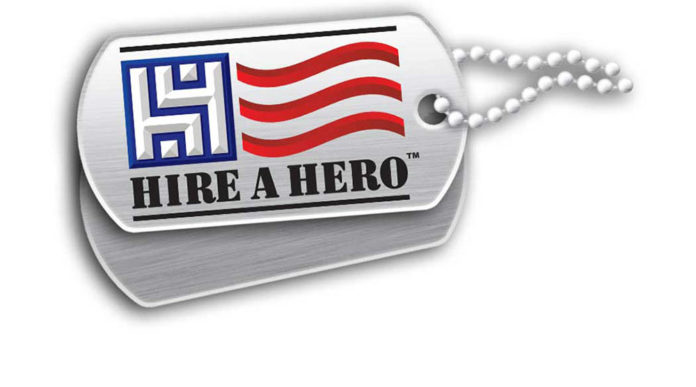
In today’s tight labor market, if your company is having difficulty finding candidates to fill your open jobs, consider veterans. Focusing on recruiting and hiring veterans has been a successful strategy for several local companies.
Two of my co-workers at Workforce Southwest Washington (WSW) are Navy veterans. In meetings, they are among the first to volunteer to help with a project and I know they will always meet their deadlines.
Navy veteran Alyssa Joyner is WSW’s Senior Project Manager for Manufacturing. She says the Navy taught her “leadership skills, teamwork and managing stress under pressure.” Joyner says, “They expect so much out of you that you either jump in and do it or get pushed to the side to do the ‘not so fun’ jobs.”
Joyner spent her time on the USS John C. Stennis (CVN-74) as a Quartermaster or navigation expert, performing ship control, driving, plotting, handling bridge watch duties and maintaining deck logs. She says, “My time in the Navy taught me relationship building. Having to manage relationships, not just with peers in my department, but others around the ship and with my chain of command. I can completely relate my job now with my time in the military and feel I am the better for it.”
Joyner works with local manufacturers to assess their workforce needs and help them develop solutions to recruit, train and retain employees. Her military background interacting with diverse groups enables her to effectively collaborate with individuals across all departments of a company. Communications training helps her explain options, including funds to help offset training costs for new hires or improve the skills of existing workers and how to build a talent pipeline by connecting with young adults.
Besides prior work experience and a strong work ethic, veterans have skills and qualities that could be good for your business.
A few of the ways your company could benefit by hiring veterans:
Soft skills. While many of the technical skills learned in the military are transferable, perhaps even more important are the soft skills such as effective communication, teamwork, critical thinking and problem solving. Businesses often tell us they can train a new employee to do a job. Finding candidates that can interact professionally with others, show up on time ready to work and have what some would call “common sense” is becoming increasingly less common.
Leadership. Veterans know how to effectively interact with a variety of people, from higher ranking officers to teammates and subordinates. Whether managing up to a supervisor or the business owner, collaborating with teammates or supervising subordinates, veterans understand how to work cooperatively with individuals from diverse backgrounds and manage for results in tough situations.
Adaptability. Things don’t always go as planned. A delivery disappears, computers crash and key employees call in sick. Keeping cool and being level-headed during a crisis is part of military training. While other employees may act as if the sky is falling, the veterans in your company will be looking for work-arounds and solutions to handle the unexpected. As they say in the Marines, “improvise, adapt and overcome.”
Shortened learning curve. Their prior work experience means veterans can be more productive for your company in a shorter time. Performing under the stress of tight schedules and limited resources, veterans know how to complete tasks correctly and meet deadlines.
Team player. Few jobs make teamwork as imperative as the military where your safety, literally, is in the hands of your unit or battalion. If you don’t work as a team, someone could get hurt or worse. Veterans carry that training into their civilian lives and it will serve your company well. Along with knowing how to work as part of a group, veterans understand the value of accountability on both the individual and team level. Successfully completing the mission or task is their goal.
In addition to gaining a skilled employee, your company may qualify for federal and/or state tax credits by hiring a veteran. An internet search will provide additional sites and information, but a few to consider include:
Work Opportunity Tax Credit (WOTC) is a Federal tax credit available to companies for hiring individuals from certain targeted groups. WOTC incentivizes workplace diversity and facilitates access to good jobs. Learn more at https://www.irs.gov/businesses/small-businesses-self-employed/work-opportunity-tax-credit.
Wage Reimbursement. Your company may qualify for up to $5,000 in wage reimbursement if the veteran you hire receives on-the-job-training. WorkSource must screen the candidate and certify they are eligible for the program before their first day of work with your company.
B&O or PUT Credit. Receive a credit against your Business & Occupation (B&O) tax or Public Utility Tax (PUT) when you hire an unemployed veteran for full-time employment. See details at https://dor.wa.gov/content/hiring-unemployed-veterans-bo-tax-and-put-credit.
Recognition. If you’ve hired a veteran since 2017, sign up for YesVets to be recognized for your support. Go to www.YesVets.org for details.
Hiring veterans is a great way for your company to tap a skilled and diverse talent pool. With Veterans Day approaching, it’s the perfect time to give it a try.
Julia Maglione is the Director of Communications for Workforce Southwest Washington (WSW), an organization that Invests in human potential by funding services that help individuals gain skills to find a good paying job or advance in their careers and helping companies attract, train and retain workers. She can be reached at jmaglione@workforcesw.org.


